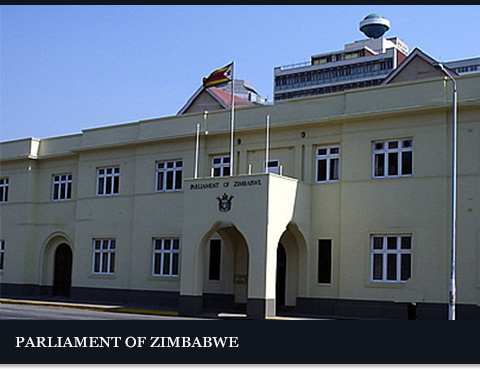Zimbabwe is among many African countries affected by climate change. The country has experienced extreme weather events such as Cyclone Idai, Cyclone Eline and other related catastrophes. The tribulations endured from the Cyclone Idai in Chimanimani, flash floods in Hwange and Binga, have had far reaching effects on many sectors of the economy. It is against this background that Legislators have taken the initiative to take action on dealing with climate change.
The Government of Zimbabwe through Ministry of Environment, Climate, Tourism and Hospitality Industry came up with a number of programs to ensure a low- carbon and climate resilient society. Key among these include National Adaptation Plan (NAP), Low Emissions Development Strategy (LEDS), Nationally Determined Contributions (NDCs).
It has been noted that implementation of these programs requires multi-sectorial engagement and the Parliament of Zimbabwe (PoZ) is among key stakeholders expected to play a pivotal role.
As the law makers, they are an essential arm of the government responsible for initiating legislative reforms, policy implementation frameworks and key informed decisions.
During the month of July 2020, Ministry of Environment, Climate, Tourism and Hospitality Industry through Climate Change Management Department (CCMD) engaged Parliament of Zimbabwe Portfolio Committee on Environment for a three day Workshop in Nyanga. This feat is hailed as transformative and promoting capacity building of parliamentarians.
The high level engagement came after the Climate Change Management Department held a similar capacity building on Climate change with a number of stakeholders in the government and private sectors.
Speaking on the sidelines of the workshop, Lawrence Mashungu, Climate Mitigation Expert from the Climate Change Management Department (CCMD) said the Parliamentary engagement was meant to build capacity to the Law-Makers so that they first appreciate various pertinent issues on Zimbabwe’s Climate agenda.
“This time around, the Climate Change Management Department prioritized the need to build capacity and raising awareness on climate change targeting the law makers.” According to Mashungu, it is essential to first engage Parliamentarians before taking the awareness to the general population. This also enhances them to develop interest and become climate sensitive.
“By engaging them, it is logic to engage law-makers before taking the awareness mode to the general citizens. This also makes them to develop interest and to become sensitive on climate issues.” Zimbabwe is on course to achieve a low carbon economy. This is enshrined in the Low Emissions Development Strategy (LEDS) document that went under a successful validation workshop in 2019. This was subsequently followed by the launch of Renewable Energy Polices and Biodiesel Policy early this year.
The projected mitigation actions resonate well with renewable energy and biodiesel polices as they all point to a low carbon economy in which green mechanisms are essential. Despite having a National Policy on Climate Change of 2013, the proposed actions on climate change in the country require effective involvement of legislators for further enhancement of climate polices. Shifting way from business as usual activities towards a Green Economy needs a strong legislative framework to enhance a smooth transition. Stakeholders have lauded the involvement of parliamentarians in the climate change discourse.
“The Implementation of the Low Emission Development Strategy and the National Adaptation Plan is made smooth by a conducive policy and legislative architecture. The creation of such a framework calls upon the informed participation of legislators. Departing from the business as usual operations will entail policy and legislative reforms and also coming up with new polices and laws altogether.”
Mr Nesbert Samu, Parliament of Zimbabwe – Executive Programs Director reiterated that Zimbabwe has no exception to climate catastrophes and this speaks a lot on the need to engage law makers to enhance polices that act to the advantage of marginalized sections of the society.
“Parliamentarians world over make laws, provide oversight on the executive and represent people who elected them. Zimbabwe is no exception. Zimbabwe’s geographical position exposes it to many environmental and climate change effects such as droughts, cyclones floods and tempestuous winds. It is imperative now and in the future that MPs embrace and acquire climate change knowledge. They should fully understand the uncertainties it brings upon humanity especially Zimbabwe’s vulnerable rural and urban poor,” he said.
Apart from this, Mr Samu sees the parliamentarians playing an oversight role in relaying climate awareness and simultaneously agitating for green climate initiatives that help transform the livelihoods of people they represent in their constituencies. “Members of Parliament should be equipped with knowledge and skills on climate change response to enable them to make good climate change laws and enact policies that drive economic investment into new job creation technologies, reducing Greenhouse Gas emissions and enhance the resilience of the communities they represent.”
